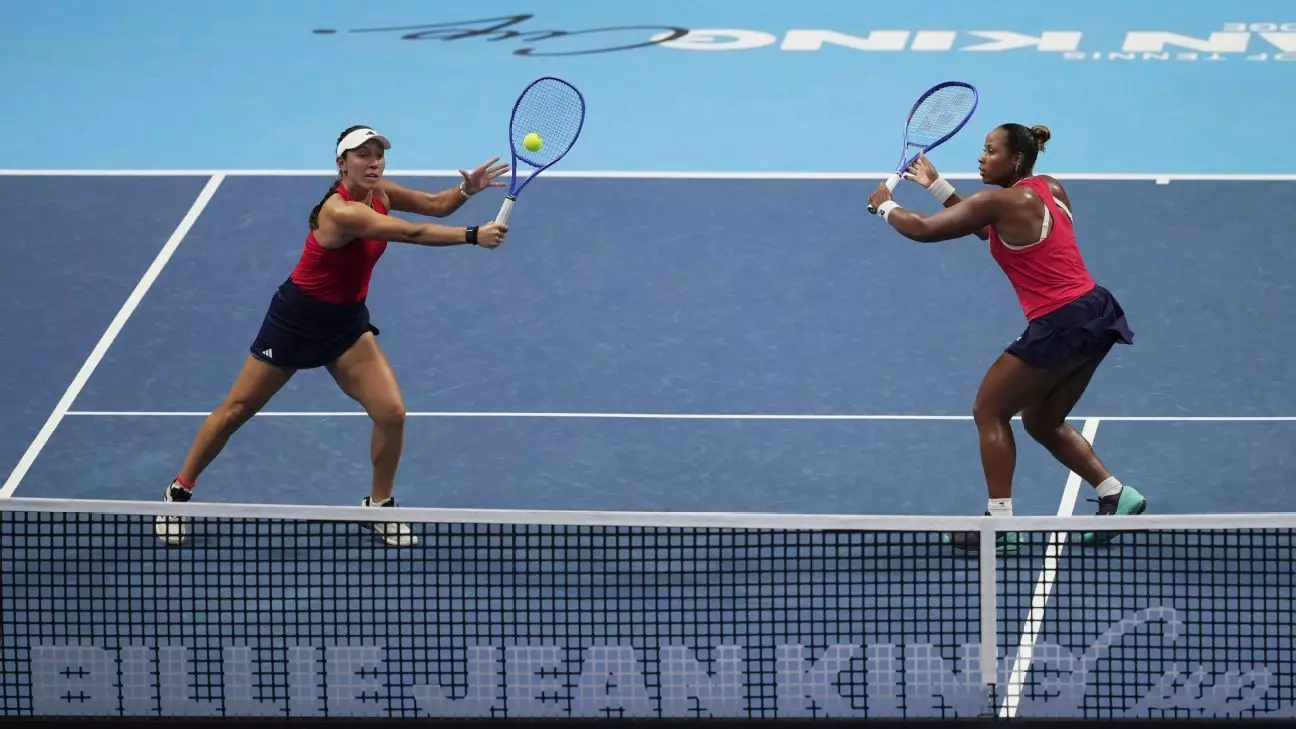The recent victory by the United States in the Billie Jean King Cup signifies more than just a advancement; it underscores a resilient spirit and strategic mastery that can propel a team toward historic success. Jessica Pegula and Taylor Townsend showcased exemplary doubles synergy, delivering a decisive victory that exemplified precision, teamwork, and mental toughness. Their ability to clinch the doubles match in a tense tiebreak demonstrates their unwavering focus under pressure—a trait necessary for long-term greatness in team sports. Pegula’s readiness to rebound from her singles loss highlights her mental fortitude and commitment to the team’s overall mission, setting a tone of perseverance that any aspiring competitor should emulate.
Emerging Under the Spotlight: Young Talent Shines Bright
Emma Navarro’s remarkable performance against Yulia Putintseva in singles exemplifies the exciting rise of new talent within American tennis. Saving two match points to prevail in a fiercely contested three-set thriller isn’t just a victory; it signifies a new generation ready to carry the torch. Navarro’s composure in high-stakes moments reveals a player with immense potential and a fearless attitude. Her resilience, especially in a match that saw her rise after being on the brink of defeat, is a testament to the depth of U.S. tennis talent. This kind of grit is vital for sustaining success in competitions as demanding as the Billie Jean King Cup.
Strategic Brilliance and the Power of Underdogs
While the U.S. team celebrated their win, it was crucial to recognize the strategic brilliance behind their success. The doubles pairing of Pegula and Townsend, both highly accomplished players, exploited Rybakina’s double fault to seal their victory. Their tactical execution outmaneuvered Kazakhstan’s top players, emphasizing the importance of versatility and adaptability. Moreover, Britain’s seamless victory over Japan, with straight-set wins in singles, reinforces the importance of cohesive team play and mental preparedness. The victories of underdog players like Sonay Kartal and Katie Boulter in critical moments exemplify how confidence can defy odds, turning potential underdog scenarios into triumphs.
Implications for the Future of U.S. Tennis
This win signals a renewed optimism for American tennis, suggesting that the current roster possesses the ingredients necessary for a comeback to the top of the global hierarchy. The blend of seasoned professionals like Pegula and burgeoning stars like Navarro indicates a well-rounded strategy for future championships. While critics have often pointed to past shortcomings, this team’s recent performances serve as a powerful reminder that with tactical discipline and mental resilience, the U.S. can reclaim its former glory. The semifinal matchup against Britain will be an intense test of this newfound grit, and how they adapt will determine their path toward a potential championship comeback.
By critically analyzing the latest performances and strategic choices, it becomes apparent that the United States is not just participating but actively redefining its approach to team competition. They are demonstrating that success hinges on mental toughness, tactical flexibility, and unyielding belief—a lesson that extends beyond tennis and into the broader realm of competitive excellence.

